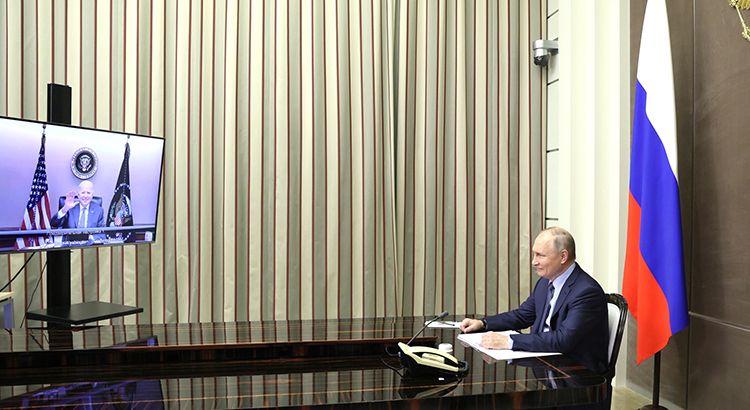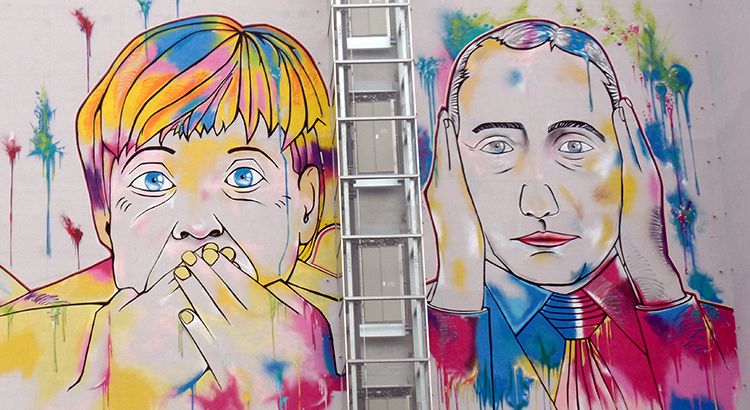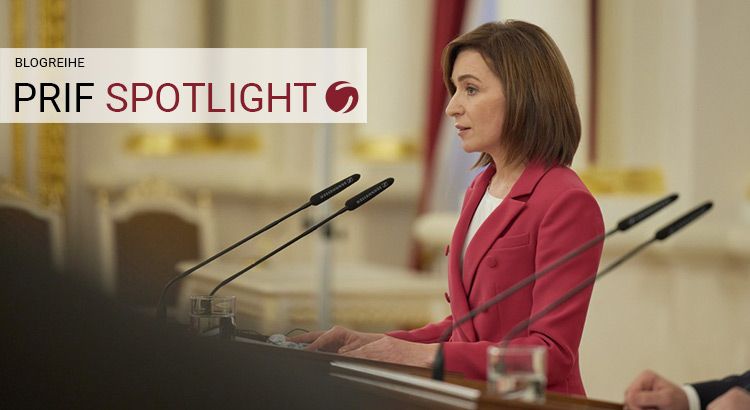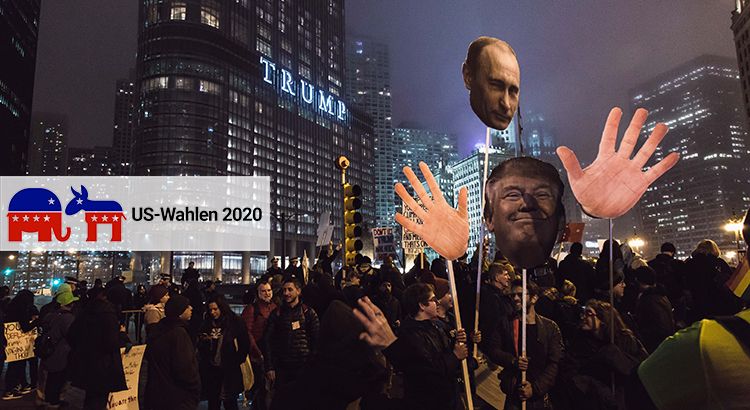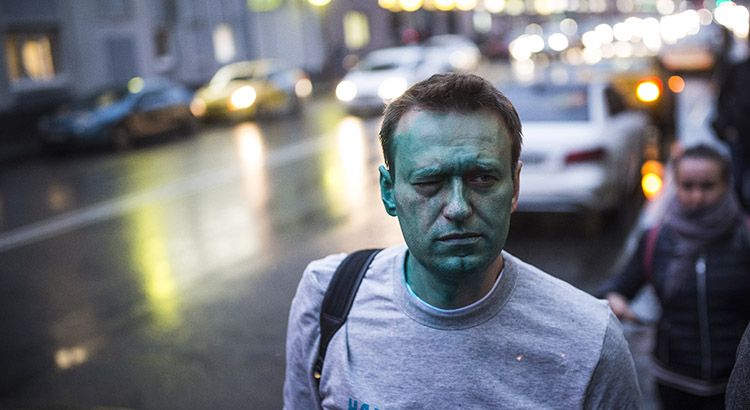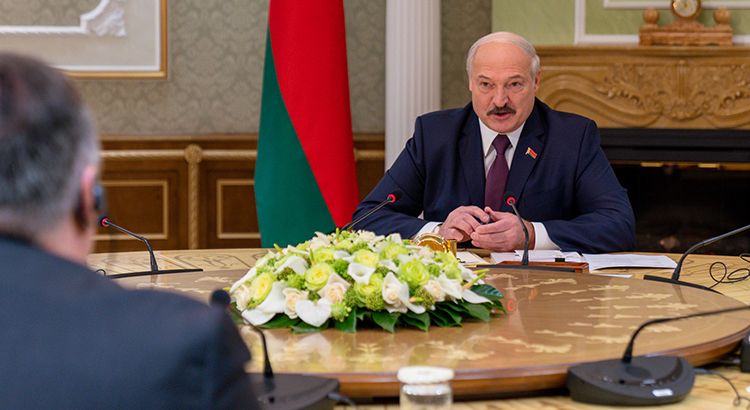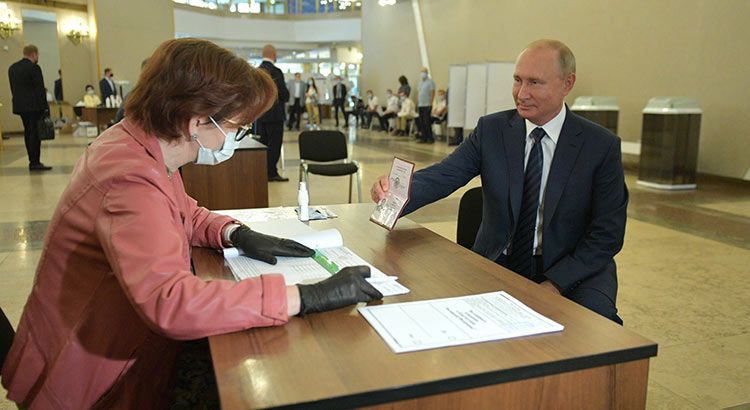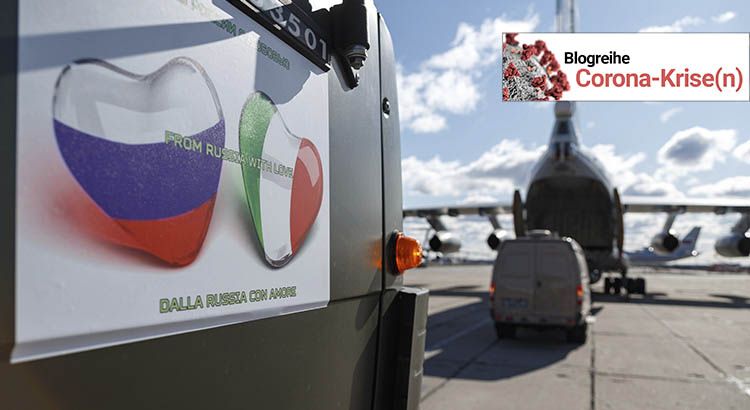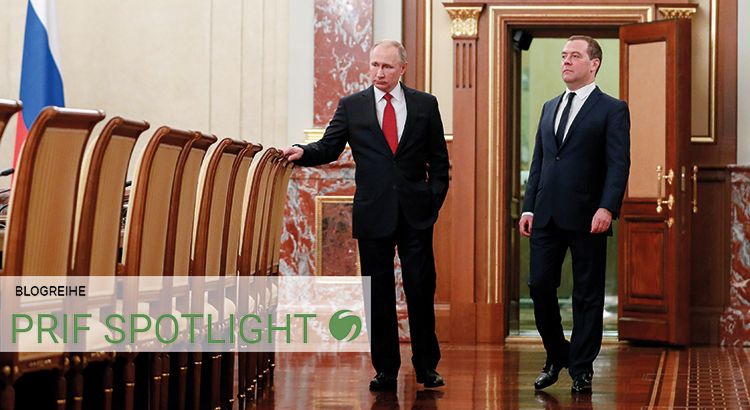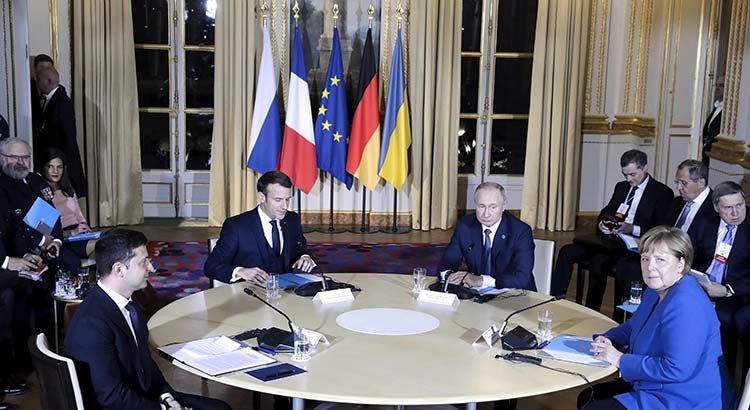Author: Mikhail Polianskii
Mikhail Polianskii ist wissenschaftlicher Mitarbeiter im Programmbereich Internationale Institutionen des PRIF und im Projekt PATTERN. Er forscht zur Außenpolitik Russlands sowie den Russland-EU/NATO Beziehungen im Rahmen der Europäischen Sicherheit. // Mikhail Polianskii is Researcher in PRIF’s Research Department International Institutions and the PATTERN project. His research interests are Russia’s foreign policy and the relations between Russia, EU and NATO. | Twitter: @PolianskiiM
The recent build-up of Russian troops on the border to Ukraine is making waves in the political debate. Predominant views in the West share the assumption that Russia has offensive intentions and aims at revising the established status quo. This blog post argues that Moscow’s motives are not as straightforward as usually assumed in the West. In fact, Russia’s military behavior and its crisis diplomacy suggests that Moscow is more interested in sending a signal than in preparing for war.
Green is the New Black? What might the “Green” German foreign policy vis-à-vis Russia look like?
The election of a new German Chancellor to replace Angela Merkel after more than 15 years in office is eagerly anticipated both at home and abroad. However, anyone expecting a drastic change in German foreign policy towards Russia will be most likely disappointed. At present, most signs indicate that relations between both countries will remain frosty or even deteriorate post-election, regardless of who ultimately prevails in the voters' preference. However, one uncertain variable in this otherwise predictable equation is the possible role played by the Green Party in shifting the country’s international course, as it most likely will become a part of a new German government after the election.
Breaking the vicious circle: Can the new Moldovan president Sandu succeed in balancing relations with the EU and Russia?
For the first time in its history, the Republic of Moldova has voted for an openly pro-Western president. Despite facing domestic and international difficulties, the newly elected Moldovan head of state Maia Sandu could manage to solve dire economic problems at home, while securing the support of both Russia and the European Union. This could have longstanding consequences for both the country itself and for all the other states of the common EU-Russian neighborhood.
This time, Russia сould not care less
“Russian interference” became a buzzword in the 2016 US presidential election and throughout the four years of Trump’s presidency. In the run up to the 2020 election, purported or real threats from Moscow have been called out again, both by serious reports and rather questionable campaigns like a (privately funded) billboard in New York that – in reference to Trump’s alleged collusion with the Kremlin - warned that “Russian lessons are expensive”. In contrast to this preoccupation with Russia, the debate or rather the absence of debate in Moscow indicates a lack of interest in the US elections and points to the fact that Russian expectations are low.
Der Fall Nawalny und die westliche Reaktion – keine Auswege aus der Destruktionsspirale?
Obwohl noch immer viele Fragen offen bleiben, wer genau und aus welchem Grund Alexey Nawalny vergiftet hat, wird bereits deutlich, dass der Fall Nawalny gravierende Folgen für die russisch-westlichen Beziehungen haben wird. Neue Sanktionen oder der Baustopp der Nordstream-II Pipeline – der Westen verfügt in seiner möglichen Gegenreaktion über eine Vielzahl von Optionen. Doch stellt sich durchaus die Frage, ob das System Putins sich überhaupt durch Druck vom Außen noch beeinflussen lässt oder dadurch nur noch verhärtet wird. Diese neue Eskalationsstufe im Konflikt mit Russland kann unbeabsichtigte Konsequenzen nach sich ziehen, was den Westen jedoch nicht davon abhalten sollte, klar und entschieden zu reagieren.
Winning Elections but Losing the Country. What does a Weakened Lukashenka Regime Mean for European Security?
No international election observers, no real opposition candidates, internet shutdown and the most brutal crackdown on peaceful street demonstrations the country ever witnessed – these are the initial results of the recent presidential elections in Belarus. Despite the aforementioned violations of democratic procedure, this comes as no surprise for all those familiar with the realities in this East European country which has been ruled for 26 long years by the former collective farm manager Alyaksandr Lukashenka. And yet August 9 2020 is likely to go down Belarus’ history books marking a turning point both for the country and for European security as it opens a new chapter of competition between Russia and the West for Eastern Europe.
What Does the New Russian Constitution Mean for European Security?
In 1993, Russia literally had to fight to adopt its new constitution. In October that year, the then president Boris Yeltsin ordered tanks to shell the White House in Moscow (seat of then Supreme Soviet, now of the Russian government), where plotters were hoping to restore the Soviet Union and roll back democratic reforms. In 2020, no show of force was required to amend the constitution (if we are to ignore the military parade on the Red Square on the eve of the seven-day-long referendum), and yet the consequences of this move for both Russia and its neighbours might be even more drastic than those 30 years ago.
From Russia with Love?! Putin and the Pandemic
For Russia the novel SARS-CoV-2 still seems to be the best of a bad lot, as the country still reports relatively low numbers of infected people. But, if coupled with other pre-existing problems (power transfer and economic hardships), the pandemic could exacerbate an already unstable situation and lead to new unpredictable foreign policy moves. Russia’s strategy in times of SARS-CoV-2 is most likely going to be threefold: further working on its global image by sending aid and offering assistance; shifting its focus from the near abroad to great power politics; and doubling up the ongoing information warfare if the first two do not bring immediate results.
Lost in Transition? Putin’s Strategy for 2024
Speculations about “Транзит“ or transfer of power have circulated in the Russian mass media since Vladimir Putin got elected as the President of the Russian Federation for the fourth time in March 2018. The turbulent political events of the first weeks of 2020 shed some light on Putin’s strategy for his future. In case he chooses to leave the president’s chair, he will hardly be able to fully control the handover of power and will likely face some unintended consequences.
What Does the Normandy Summit Mean for the Peace Process in Ukraine?
The beginning of conflict in Eastern Ukraine is nearing its sixth anniversary. The concerted effort of Russian, French, German and Ukrainian leaders to settle this issue diplomatically has yielded few tangible results so far. The recent meeting in Paris of four leaders gives ground for cautious optimism. What have the parties agreed upon? What problems remain and what has changed since the last round of Normandy negotiations?
